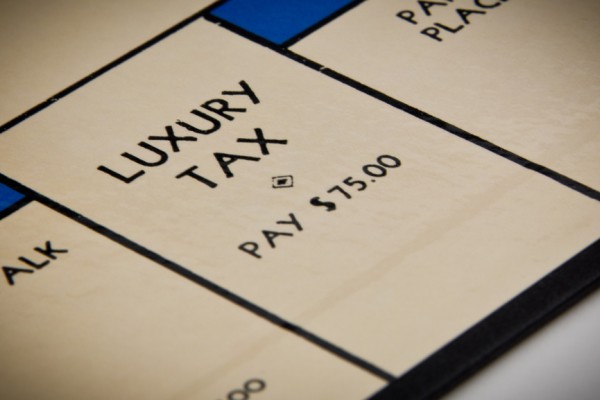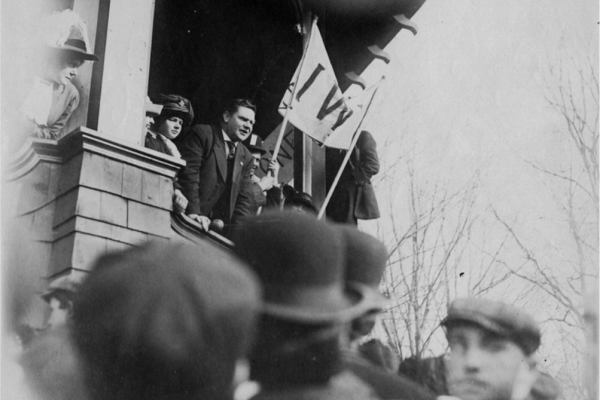For the NDP, universal basic income should be a top priority
This is the opportunity for a once-in-a-generation policy shift

NDP leader Jagmeet Singh speaks during a sitting of the House of Commons, June 2020. Photo from Twitter.
The last two federal elections were not what the NDP had hoped for.
Many factors have contributed to the party’s decline: the death of Jack Layton in 2011, Canadian nostalgia for Trudeaumania in 2015, and the fact that due to the general cyclical nature of politics, the orange tide in Québec has now receded.
Something must be done—and urgently—to correct course and prevent the total erosion of the NDP’s electoral prospects. The party has already fallen from Canada’s ‘government in waiting’ during the Harper years, to having fewer seats than the Bloc Québécois in today’s parliament.
The NDP has a history of running on nuanced policy distinctions to separate themselves from the Liberals. While an understanding of the importance of well thought out and articulated policy speaks to the NDP’s capacity for good governance, it does not lend itself to simplistic (and often effective) election sloganeering.
Take the Liberals cannabis legalization platform, and compare it to the NDP’s stance on criminal expungements for minor possession. One is the baseline level of acceptable progressive policy, while the other goes beyond that and also addresses policing practices which have disproportionately impacted Black and Indigenous communities. While the NDP’s plan clearly demonstrates an important distinction in governance, it is much harder to articulate into a snappy campaign in the form of slogans and catchphrases that can help win elections.
Another example is the Liberals’ proposed patchwork pharmacare system, versus the NDP’s all-inclusive proposal for universal pharmacare, dentalcare, and mental health access. Campaigning on healthcare that does not begin from the neck down is closer to a clear separation of political principals. However, the NDP’s ability to distinguish itself from the Liberals on the issue of pharmacare is still watered down by the ability of the Trudeau government to spin its incrementalist approach as a bold progressive move.
Former NDP leader Jack Layton pointed out that the Liberal’s strategy is routinely to blur the lines between themselves and the NDP during the election—convincing Canadians that the only difference between themselves and the New Democrats is not the destination, but how they get there. However, as issues from electoral reform to meaningful action on climate change show, these promises are also routinely discarded once the Liberals come to power.
While the NDP still serves as the only viable electoral refuge for Canadian progressives, a clearer cleavage is needed to up the party’s communications game, and keep the Liberals from siphoning off the progressive vote.
A bold distinction is needed between Jagmeet Singh’s NDP and Justin Trudeau’s Liberals, to capture the Canadian public’s attention and imagination.
This is where universal basic income (UBI) can play a pivotal role.
If Trudeau governs with the future in mind—instead of the pathological centrism that generally afflicts the Liberals—the federal NDP will not have a chance in the coming election; the perceived mantle of the progressive left will be snatched from under them.
However, if the Liberals choose to discontinue payments through the Canada Emergency Response Benefit (CERB) without a viable UBI alternative, there is the ideological space for the NDP to insert themselves more prominently into the Canadian political discussion. This will allow the NDP to enter the next election with a bold progressive vision that Canadians understand—one that avoids complicated distinctions and resonates with ordinary voters and working people.
While UBI is not perfect, and many on the left view it as a way to subsidize low wages of firms and scale down social services, wouldn’t it be nice for us on the Canadian left to win an election for a change?
The NDP has an opportunity to run on a tangible redistribution policy that Canadians can fundamentally relate to. While not advertised as such, the CERB has taken on the role of UBI, and has been the bread and butter issue that many households have relied on for survival throughout the COVID-19 pandemic.
This is not to say that Jagmeet Singh’s NDP has not been proactive on the issue of UBI. In fact, the party has taken the first step in calling for a form of UBI instead of the Liberals’ patchwork system of CERB payments over the last four months. It is time, however, to take the next step, and make UBI’s permanence a campaign issue.
For the Millennial and Gen Z demographics who have been hungry for something radically different them the economic status quo that promises them a worse quality of life than their parents, a permanent UBI is a winning issue.
Amid the pandemic, too, older generations of Canadians are also realizing the viability of alternatives to our system of endless growth and rampant income inequality.
New polling from the Broadbent Institute indicates that a majority of Canadians support an extensive expansion of government spending in the post-COVID recovery. This is the opportunity for a once-in-a-generation policy shift for the party that seizes it.
It is time for the NDP to strike out boldly from the policy norm with UBI, or strike out federally in 2023.
Jonas Goldman is a former NDP staffer and recent graduate of Columbia’s MPA in environmental science and policy.










